If you cross the river from Georgetown in Seattle and find yourself in need of a cup of coffee, you’d probably find your way to Resistencia Coffee, a little shop I have the joy of co-owning with my wife and a few neighbors.
If you get a cup of coffee and decide you’d like some cream or want to grab a napkin you’ll most likely see written on it in big letters our definition of Resistencia, the Spanish word for resistance.
“A local community standing up against adversity with relentless hope and care for everyone in the neighborhood.”
We didn’t write this as a definition of community resilience per se, but if we are faithful to this vision, resilience will surely follow. When you write a sentence like this, of course you need every word to count. But, we have found it all hinges on the phrase, “relentless hope”. Any form of resilience hinges on it as well. The ancient wisdom of Jesus to “seek first the Kingdom and all else will be added to you” might begin to sound like a Sunday School cliche after a while, but as Christians, this is how we build our capacity for resilience through the side door. We have a clear mandate to the flourishing of others, which is always grounded in the trust of God’s activity. God is for and with all of our neighbors, so we should be as well. If we are faithful to this vision and have the courage to make it a practice in a particular place, resilience will be the side effect. Perhaps you disagree, but most of the elemental desires we have as human beings can only truly be attained when they are not the focus of our attention.
Happiness, growth, resilience…. these are all words and longings that cannot and perhaps should not be made the focus. They come about from something else, they sneak into the side door while we focus on purpose, vision, and ultimately hope. In other words, if our communities need resilience, and they do now more than ever, we need to place our focus on the grounded possibility that springs from what theologian Dr. Willie Jennings calls the “discipline of hope”.
While it feels like the pandemic has been with us forever, I acutely remember those first precarious few months. It certainly did not feel like a time of hope, it actually felt like a time to panic. What will happen to so many neighbors who will lose their jobs? What will happen to our coffee shop and all our neighboring businesses? We had no idea, but we knew we needed to stay focused on “relentless hope”. As a result, we were astonished by the innovation and resilience of everyday heroes we are grateful to call our neighbors. Nine different families used their homes to become a decentralized distribution network to give away food to our neighbors who needed it. Most of the local businesses quickly shifted to keeping as many employees as possible. We accelerated our desire for our neighborhood to function as a mutual aid society because we had been slowly nurturing this way of life for years.
When disaster strikes what you need more than anything is social capital, trust between neighbors that’s slowly been built up over years. This kind of trust always take time, it doesn’t appear very glamorous, and you can never really know with certainty what possibilities your collective relationships will make possible. Before we opened the coffee shop, my wife and I hosted soup nights in our home for years. Each Wednesday we would cook a big batch of soup and remind a few neighbors to come over and hang out. These evenings became really special for us. There were regulars and guests, there were rambunctious kids tromping around, and more often than not different neighbors would bring a bottle of wine they loved, a side dish they were excited about, or a loaf of bread they just baked that day. There was no plan to host a soup night for a few years and then start a coffee shop. The idea of the coffee shop emerged over many months as we collectively dreamed up how we could make this beloved neighborhood we shared even more amazing. All of us lamented how we needed a more public space where these types of conversations we were having over soup could happen more often every day. It’s not exactly the most creative idea in the world to start a coffee shop, especially in Seattle, but the desire emerged from our collective hope which grew in the soil of our growing relationships of mutual trust. Relentless hope drives possibility and dares us to trust each other. As a result, we receive the crucial gift of resilience against the very forces that might take us apart.
This is why the foundational vision and conviction for what our common life can become is powerfully important. It takes work to keep hoping right now. It’s going to require small teams who have the courage to bear witness to what is possible. I believe it will also take literal common ground, a defined place where our collective hopes can begin to spur us all towards action. For those of us following Jesus, who is the author and perfector of our faith, we know this kind of hope is not some kind of pastel-colored wishful thinking. It’s an invitation to stay focused on what matters most. I love how theologian Jürgen Moltmann frames this dynamic, “that is why faith, wherever it develops into hope, causes not rest but unrest, not patience but impatience… Those who hope in Christ can no longer put up with reality as it is.”
As we all begin to plot out what our common life can begin to resemble on the other side of this pandemic, may your hope be grounded and disciplined in the trust that God is doing something new. May you begin to see what is possible and believe it, just as sure as you are reading these words. And may you receive the gift of belonging to a resilient community in these tumultuous days that are brimming with fresh opportunities to begin again.
About the author:
Tim Soerens is the co-founding director of the Parish Collective, a growing network and global movement of Christians reimagining what it means to be the Church in, with, and for the neighborhood.
His latest book is called “Everywhere You Look: Discovering the Church, Right Where You Are”. His co-authored first book “The New Parish: How Neighborhood Churches Transform Mission, Discipleship, and Community (Intervarsity Press, 2014) won multiple awards, including Christianity Today’s award of merit.

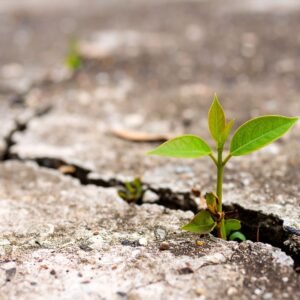
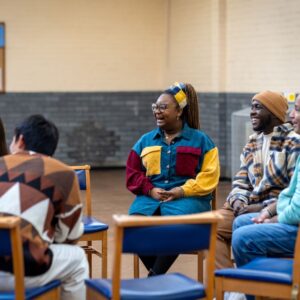
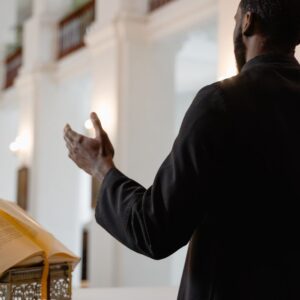



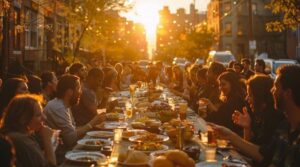
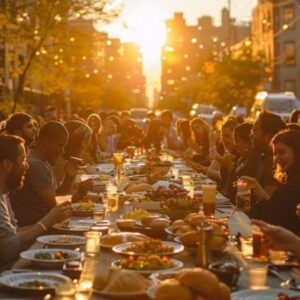
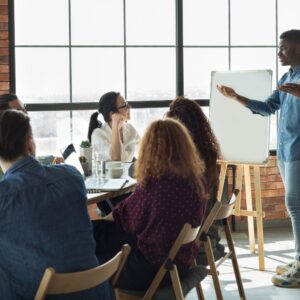
0 Comments